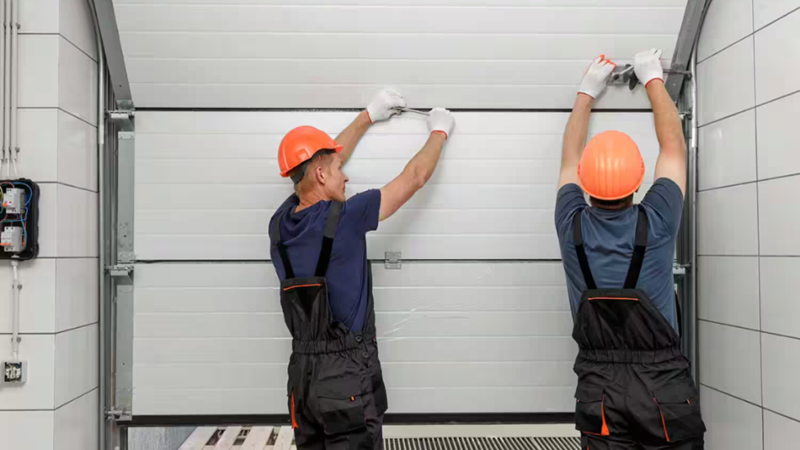A garage door is one of the hardest-working components of a home. In Houston, where both weather conditions and daily routines can put extra stress on mechanical systems, garage doors endure significant wear and tear. Many homeowners use their garage doors as the main entry point, which makes timely upkeep not just a matter of convenience but also one of safety and long-term cost savings.
The key question most homeowners face is: How often should you schedule a garage door tune-up in Houston? The answer depends on several factors, including local climate, usage frequency, and the age of the system. This expert guide explores the ideal tune-up frequency, why maintenance matters, and how Houston’s unique conditions influence garage door care.
Why Garage Door Tune-Ups Are Essential
Garage door tune-ups go far beyond checking for obvious problems. They are preventive measures that ensure smooth operation, extend the lifespan of components, and reduce the risk of unexpected breakdowns. Key benefits include:
-
Safety: A malfunctioning spring or cable can be hazardous. Regular tune-ups reduce these risks.
-
Longevity: Routine maintenance prevents premature wear on tracks, rollers, and openers.
-
Efficiency: A well-tuned system operates quietly and reliably.
-
Cost savings: Catching small issues early prevents major repairs later.
In Houston, where the mix of humidity, heat, and seasonal storms can quickly degrade moving parts, these tune-ups are even more crucial.
How Often Should You Schedule a Garage Door Tune-Up in Houston?
For most households, an annual tune-up is the industry standard. However, Houston homeowners may benefit from more frequent maintenance depending on their circumstances.
-
Standard Use: Once every 12 months is sufficient if the garage door is used two to four times per day.
-
Heavy Use: For households where the door serves as the main entryway (often 6–10 cycles daily), scheduling a tune-up every 6 months is recommended.
-
Older Systems: Doors and openers over 10 years old may need professional inspections twice a year to stay reliable.
-
After Severe Weather: Following hurricanes, strong storms, or flooding, an immediate inspection is wise to check for water damage, misalignment, or rust.
In short, while once a year is the baseline, local factors in Houston often push the need toward more frequent tune-ups.
Local Factors in Houston That Impact Garage Door Maintenance
Houston presents unique conditions that affect how often your garage door needs professional care:
Humidity and Moisture
High humidity levels can cause rust on springs, hinges, and tracks. Moisture also weakens wooden garage doors, leading to warping or swelling.
Heat and Sun Exposure
Houston summers bring scorching heat, which can weaken lubrication, dry out seals, and even cause fading or cracking in garage door panels.
Storms and Hurricanes
Extreme weather events can knock doors off track, damage openers, or bend panels. Storm-related debris may also obstruct the door’s path, creating safety hazards.
Urban vs. Suburban Usage
City homeowners may use their garage doors more frequently due to tighter parking, increasing wear compared to suburban properties where the garage is secondary.
Signs Your Garage Door Needs Immediate Attention
While tune-ups are preventive, certain warning signs mean you shouldn’t wait until the next scheduled service:
-
Loud grinding, squeaking, or popping noises
-
Uneven or jerky movement when opening or closing
-
Slow response from the opener
-
Visible rust, fraying cables, or bent tracks
-
Door not sealing properly against the ground
Addressing these issues promptly not only ensures safety but also prevents further damage.
What a Professional Garage Door Tune-Up Includes
An expert tune-up in Houston typically covers:
-
Inspection: Checking springs, rollers, tracks, cables, and openers.
-
Lubrication: Applying high-quality lubricants to hinges, rollers, and bearings.
-
Balance Test: Ensuring the door opens smoothly without strain.
-
Tightening: Securing bolts, nuts, and hardware.
-
Opener Calibration: Adjusting sensitivity and travel limits for smooth operation.
-
Safety Check: Testing auto-reverse features and sensor alignment.
This comprehensive approach ensures the system performs at peak reliability despite Houston’s climate challenges.
DIY Maintenance Between Professional Tune-Ups
While expert service is essential, homeowners can perform small tasks to extend the life of their garage door:
-
Clean Tracks Regularly: Remove dust and debris.
-
Lubricate Lightly: Use silicone-based lubricants on moving parts every few months.
-
Check Weatherstripping: Replace if cracked or worn to improve insulation and pest control.
-
Visual Inspections: Look for rust, loose bolts, or frayed cables monthly.
These simple habits keep your door functioning smoothly between professional visits.
Balancing Cost and Value
Some homeowners hesitate to schedule regular tune-ups, assuming they are unnecessary expenses. However, the cost of routine maintenance is minimal compared to emergency repairs or full replacements. A tune-up typically costs far less than replacing a broken spring or opener—and significantly less than installing a new garage door system.
In Houston, where heavy storms and constant usage accelerate wear, investing in regular tune-ups pays for itself in reliability, convenience, and peace of mind.
Conclusion
Garage doors are more than just entry points—they’re vital parts of home security, convenience, and curb appeal. For Houston residents, the combination of frequent use and local climate factors means that tune-ups aren’t optional; they’re essential.
The expert recommendation is at least one tune-up per year, with bi-annual service for heavily used or older systems. Factoring in Houston’s heat, humidity, and storms, scheduling regular tune-ups ensures that your garage door remains safe, efficient, and durable.
By following these guidelines and staying proactive with maintenance, you not only extend the life of your garage door but also save money in the long run—while keeping your home secure and functional year-round.

